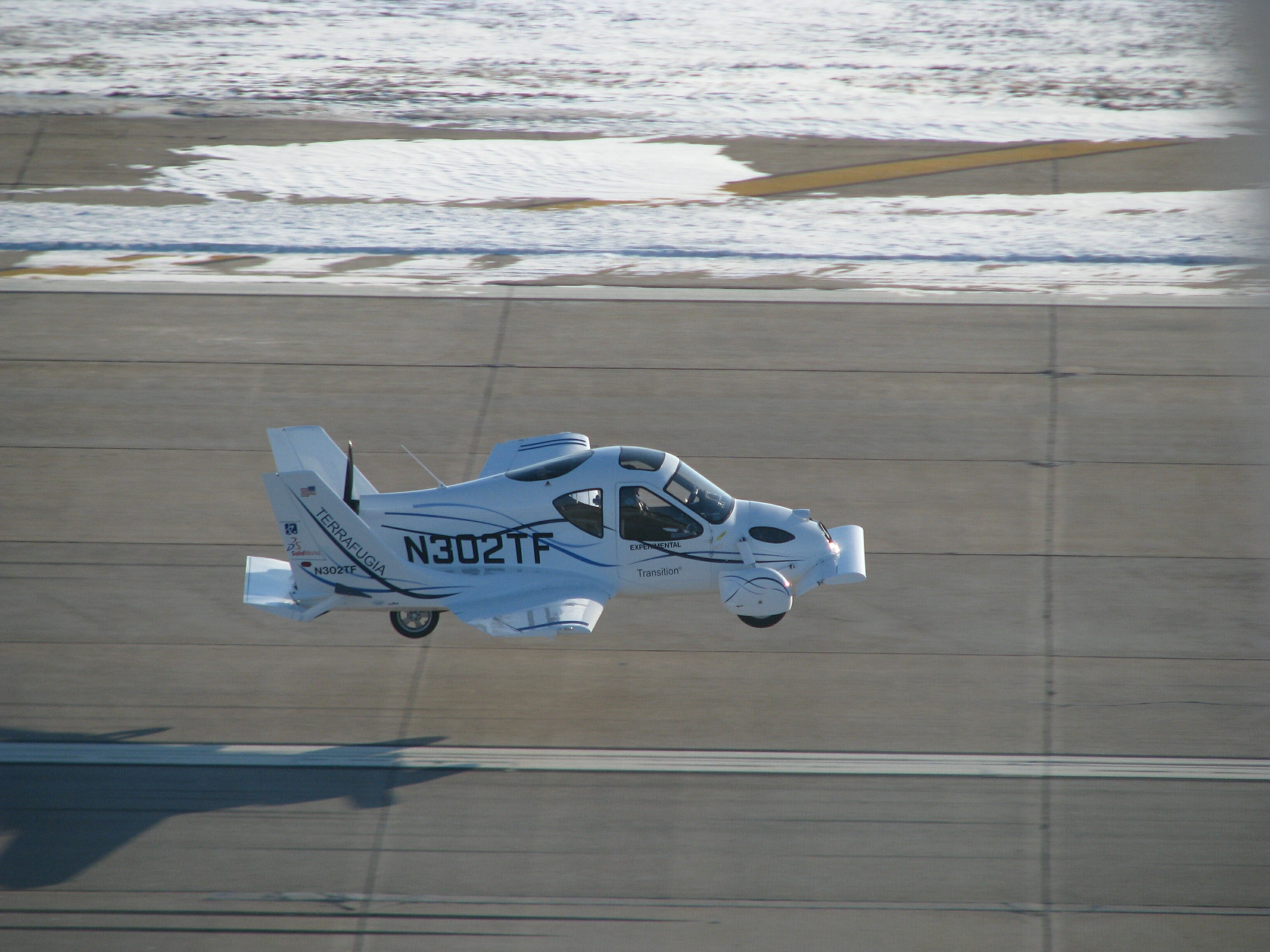Terrafugia flying car makes maiden flight
Transition roadable aircraft proves it can fly as well as drive

Boston-based Terrafugia has announced that its Transition roadable aircraft proof of concept vehicle has successfully made its first flight, from Plattsburgh Airport in New York on March 5.
The Transition has a 100hp petrol motor that drives either the wheels or a rear-facing propeller. As a car, the driver uses a normal steering wheel, accelerator and brake pedals, but no gear stick (the Transition has a continuously variable transmission).
With its folding wings deployed and propeller spinning, the Transition can take off from any airfield, and then fly up to 500 miles on a single tank of normal unleaded petrol at a cruising speed of around 115mph.
More than meets the eye
"It's like a little Transformer," according to Terrafugia Inc boss, Carl Dietrich. "This is the first really integrated design where the wings fold up automatically and all the parts are in one vehicle. All we have is one, simple folding wing and that means the Transition takes just 15 seconds to switch between flying and driving."
The Transition takes advantage of recent US legislation that created a new class of aircraft called Light Sports Aircraft. These planes have streamlined construction and safety regulations, and require much less time to qualify as a pilot.
The Terrafugia still has regulatory hurdles to overcome, not least of which are meeting car crash tests and other vehicular standards - none of which were designed with flying cars in mind. "It took six months just to get our licence plate," says Dick Gersh, vice-president at Terrafugia.
Sign up for breaking news, reviews, opinion, top tech deals, and more.
The Transition's 37-second maiden flight was conducted within the runway environment and demonstrated the aircraft's stability and controllability. Test pilot retired Air Force Colonel Phil Meteer said, "The first flight was remarkably unremarkable. The Transition flew like a really nice aeroplane."
The $200,000 (£142,000) Transition is scheduled to enter full production during 2009 - and Terrafugia already has orders for 40 aircraft.
Mark Harris is Senior Research Director at Gartner.